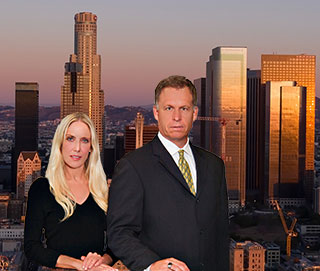California Bar Sends Out Email in Error With Question Topics
The Supreme Court of California plans to investigate exactly how an email disclosing this year’s topic for bar exam questions was inadvertently sent to several law school deans, prompting the State Bar to email the essay topics to all test takers to level the playing field. Approximately 9,000 have students completed the first day of the test, which takes place on July 30-31, 2019.
The California bar exam, generally accepted as one of the most difficult bar exams in the United States, recently switched from a three-day format to a two-day testing period. The test consists of the Multistate Bar Examination (MBE), comprised of 200 multiple choice questions; five essay questions, and one Performance Test (PT). The essay questions and PT can cover any of 13 subjects including civil procedure, constitutional law, contracts, trusts, and wills. Much of the test’s grueling nature can be attributed to having to study all subjects adequately so that the test taker can write an essay on any topic.
California bar takers were stunned, when on July 27, 2019, they received an email listing the topics to be covered on the upcoming exam. Many thought the email was a hoax. The email, from Chief of Programs for the State Bar Donna Hershkowitz, stated:
To: Applicants for the July 2019 California Bar Examination
It has come to our attention that the State Bar inadvertently provided a number of deans of law schools in California a list of the subject matter topics contained in the July 2019 California Bar Examination essay questions and performance test. Out of an abudance of caution and fairness, we are sending the same information, verbatim, to all those preparing to take the examination. The memo provided:
The subject areas and tasks for the July 2019 California Bar Examination are listed below…
Question 1: Civil Procedure
Question 2: Remedies/Constitutional Law
Question 3: Criminal Law and Procedure
Question 4: Professional Responsibility
Question 5: Contracts
PT: Objective Memo – Evidence
The State Bar of California invites a rotating group of law school deans to attend a bar exam grading session after the bar is administered. According to the bar, the email containing the test topics was mistakenly sent early. It is unknown whether the deans shared the topics with test takers, but the bar decided to share the topics with all applicants regardless.
While many have expressed outrage that the leak of the exam topics gives this year’s test takers a leg up on those who previously went into the test blind, others believe the disclosure won’t make a substantial difference; saying two days isn’t enough time to master a subject.
But, the disclosure did eliminate several topics from the running, and allowed a streamlined review in the final days before the exam. A faculty member from UCLA noted that “[i]nstead of having to memorize a thousand rules, students only have to memorize 750 rules.”
The California Supreme Court is the body responsible for oversight of the bar admission process and have released a statement that a thorough investigation will take place. The state bar has claimed they considered changing out the exam questions or postponing the exam but decided releasing the exam questions was a better option.
The pass rate of California’s exam is notoriously low, usually around 45-50% for first-time takers. February 2019’s exam saw a record low pass rate of 31.4% for first-time takers. Many have speculated the disclosure will lead to an increase in pass rates; but it will remain speculation until test results are released in November.
The content of this website including, but not limited to, this posting, has been prepared by Budris Law Group for informational purposes only and should not be construed as legal advice. The information you obtain at this site is not, nor is it intended to be, legal advice. The material posted on the website is not intended to create and receipt of it does not constitute, a lawyer-client relationship, and readers should not act upon it without seeking professional counsel. We invite you to contact us and welcome your calls, letters and electronic mail. Contacting us does not create an attorney-client relationship.


